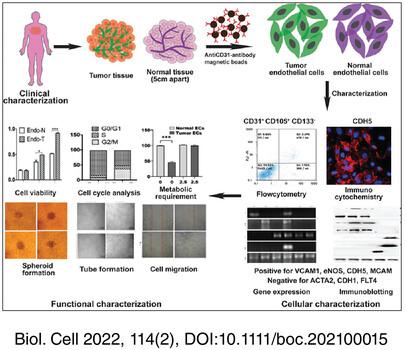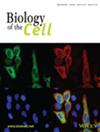Human breast tumor derived endothelial cells exhibit distinct biological properties
Abstract
Background Information
Excessive angiogenesis characterized by leaky, tortuous, and chaotic vasculature is one of the hallmarks of cancers and is significantly correlated to poor prognosis. Disorganized angiogenesis leads to poor perfusion of anti-cancer drugs and limits access to immune cells. Hence, impeding angiogenesis is one of the attractive therapeutic targets to inhibit progression and metastasis in several solid tumors including breast.
Results
We have developed a robust and reproducible method for isolating and ex vivo culture of endothelial cells (EC) derived from non-malignant (Endo-N) and malignant (Endo-T) part from clinically characterized human breast tumors. RT-PCR and immunoblotting analysis indicated that these cells exhibited expression of endothelial specific genes such as PECAM-1 (CD31), Endoglin (CD105), eNOS, VE-cadherin, VCAM1, and MCAM. Vasculogenic mimicry and contamination of progenitor EC recruited in tumors was ruled out by absence of CD133 expression and normal karyotype. Both the cell types showed stable expression of CD31 and CD105 up to seven passages. Furthermore, compared to Endo-N cells, Endo-T cells showed (a) constitutively increased proliferation marked by nearly 36% of cells in mitotic phase, (b) requirement of glutamine for cell survival, (c) pro-migratory phenotype, (d) produced increased number of sprouts in 3D cultures, and (e) resistance to sorafenib.
Conclusion
Tumor derived EC showed distinct biological properties compared to normal breast EC.
Significance
Our method for isolating endothelial cell types from human breast tumors may be explored to (a) understand cellular and molecular mechanisms, (b) screen anti-angiogenic molecules, and (c) formulate organoid cultures to develop personalized medicine facilitating better clinical management of breast cancers.


 求助内容:
求助内容: 应助结果提醒方式:
应助结果提醒方式:


